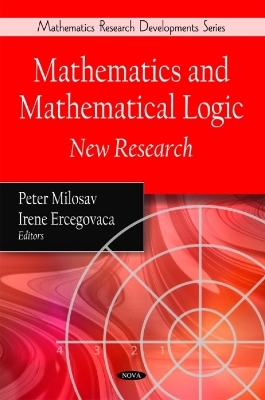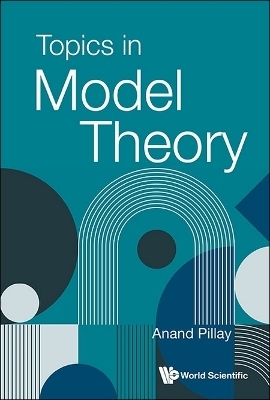
Mathematics & Mathematical Logic
New Research
Seiten
2010
Nova Science Publishers Inc (Verlag)
9781606928622 (ISBN)
Nova Science Publishers Inc (Verlag)
9781606928622 (ISBN)
A computational model is a mathematical structure which is constructed in an easy way and is useful in performing certain computations on the structure. This book discusses how the idea of 'computational model' has been formalised by connecting the domain theory with the theory of metric spaces and related topological spaces.
A computational model is a mathematical structure which is constructed in an easy way and is useful in performing certain computations on the structure. This book discusses how the idea of "computational model" has been formalised by connecting the domain theory with the theory of metric spaces and related topological spaces. The nature of number is also examined, from a synthetic, holistic and interdisciplinary point-of-view, which is mostly mathematical but also encompasses respective psychological, neuro-physiological and philosophical views. Reversible logic circuits are discussed, which are beneficial to both classical and quantum computer design. Three experimental prototypes are used to illustrate how, in the near future, reversible computers will outperform conventional computers, in terms of power dissipation and heat generation. In quantum mechanics and field theory, Schroedinger equation for a single particle in one-dimensional imaginary potential represents one of the most popular schematic non-Hermitian models. Via a solvable square-well approximation technique, this book examines the problems in both the co-ordinate and momentum representations. The optimisation problem is also looked at, which in traditional designs, is stated in precise mathematical terms but in real life, are stated in vague and linguistic terms.
A computational model is a mathematical structure which is constructed in an easy way and is useful in performing certain computations on the structure. This book discusses how the idea of "computational model" has been formalised by connecting the domain theory with the theory of metric spaces and related topological spaces. The nature of number is also examined, from a synthetic, holistic and interdisciplinary point-of-view, which is mostly mathematical but also encompasses respective psychological, neuro-physiological and philosophical views. Reversible logic circuits are discussed, which are beneficial to both classical and quantum computer design. Three experimental prototypes are used to illustrate how, in the near future, reversible computers will outperform conventional computers, in terms of power dissipation and heat generation. In quantum mechanics and field theory, Schroedinger equation for a single particle in one-dimensional imaginary potential represents one of the most popular schematic non-Hermitian models. Via a solvable square-well approximation technique, this book examines the problems in both the co-ordinate and momentum representations. The optimisation problem is also looked at, which in traditional designs, is stated in precise mathematical terms but in real life, are stated in vague and linguistic terms.
Preface; On Computational Models for the Hyperspace; On Number's Nature; Reversible Logic; Imaginary Cubic Oscillator and its Square-Well Approximations in $x-$ and $p-$ Representation; The Application of Fuzzy Linear Programming in Engineering; A New Consensus Scheme for Multicriteria Group Decision Making under Linguistic Assessments; Second-Order Definability in a Model; The Mathematical Basis of Periodicity in Atomic and Molecular Spectroscopy; Algebraic Topics on Discrete Mathematics; Mathematical Models of QoS Management for Communication Networks; Mathematical Modelling Approaches for Optimization of Chemical Processes; Index.
| Erscheint lt. Verlag | 1.7.2010 |
|---|---|
| Zusatzinfo | Illustrations |
| Verlagsort | New York |
| Sprache | englisch |
| Maße | 260 x 180 mm |
| Gewicht | 680 g |
| Themenwelt | Mathematik / Informatik ► Mathematik ► Logik / Mengenlehre |
| ISBN-13 | 9781606928622 / 9781606928622 |
| Zustand | Neuware |
| Informationen gemäß Produktsicherheitsverordnung (GPSR) | |
| Haben Sie eine Frage zum Produkt? |
Mehr entdecken
aus dem Bereich
aus dem Bereich
Buch | Softcover (2025)
Verlag an der Ruhr
CHF 25,90
Buch | Softcover (2024)
World Scientific Publishing Co Pte Ltd (Verlag)
CHF 43,60
what we have that machines don't
Buch | Softcover (2024)
Profile Books Ltd (Verlag)
CHF 19,15


